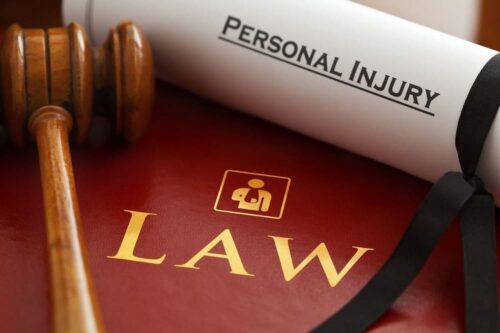
Few things are worse than sustaining a serious injury in an accident caused by the negligence of another. Unfortunately, this is something that happens virtually every single day here in Connecticut. Not only are injuries physically painful, but they can also be costly. To make matters worse, people often find themselves unable to return to work and collect a regular paycheck to help cover the cost of their medical bills or meet normal expenses of daily living. That said, if you are unable to return to work after an accident, you may wonder whether you can sue for lost wages. Please continue reading and reach out to a seasoned Fairfield County, Connecticut personal injury lawyer from Casper & de Toledo to learn more.
Am I allowed to sue for lost wages in Connecticut?
As long as you can prove that you were injured as a direct result of another party’s negligence in your personal injury claim, you should be entitled to compensation for lost wages. Lost wages can include wages you missed while recovering from your injury, lost earning capacity (i.e. lost future wages), and more.
- Issues revolving around being disabled from work can be a bit tricky and may require some nuanced thinking. Consider the following:
- Claims for lost earnings often depend upon proving your earning history. That proof is straightforward if you collect a regular paycheck. However, if you are self-employed, have a history of being paid in “cash” also known as “under the table,” or are compensated at least in part on the basis of commissions, greater planning may be necessary. For these situations, reliance on tax returns may be important.
- If your tax returns are inaccurate because the returns do not accurately report your income, we might advise you to amend your tax returns, which likely involves creating a liability for interest and penalties.
- As a self-employed individual, it may be difficult to fairly calculate your loss. We have used an alternate method for demonstrating loss of income or lost earning capacity during a period of total or partial disability by having you estimate the percentage of reduction of productivity for a given period. That was an approach used by Stewart Casper of our office in a case tried to verdict in Superior Court in Stamford, CT. That successful case was appealed by the defense and the judgment was affirmed on appeal (handled by Casper & de Toledo partner Victoria de Toledo) to the Connecticut Supreme Court. Duncan v Mill Management Co. of Greenwich, 308 Conn. 1 (2013). The decision in the Duncan case was the first time any appellate court in the United States approved of the “estimated reduction in productivity” approach for calculating an earnings loss.
- Depending upon the magnitude of the disability, we might use expert witnesses to establish the lost earnings/loss of earning capacity claims using a vocational expert and/or an economist.
If you are an undocumented worker, it is, unfortunately, unlikely that there can be a successful lost earnings/earning capacity claim on the basis of earnings in the United States, even if you have sustained an injury in this country.
What other damages can I recover?
Depending on the circumstances of your accident and injury, you may qualify for compensation for the following, among other things:
- The cost of medical bills (past and future)
- Pain and suffering
- The loss of enjoyment of life
- Emotional distress
- Permanent injury
- Disruption of familial relationships.
How do I prove my claim?
To satisfy the burden of proof in a personal injury claim, you should do what you can to document the incident, whether you were injured in a car accident, slip and fall, or otherwise. This can include:
- Taking pictures of the scene of the accident or of any damage the accident caused
- Asking witnesses for their contact information
- Calling the police to the scene of the accident
- Seeking medical treatment and keeping copies of medical documentation
- Hiring an attorney who can potentially help you retrieve surveillance footage of your accident as it happened
How long do I have to file my claim?
In Connecticut, accident victims generally have two years from the date of their accident to file a personal injury claim. This means if you wait any longer than two years, you will most likely lose your chance to sue the party responsible for your injuries. Don’t make this mistake. Simply speak with Casper & de Toledo today so we can help you sue for your lost wages, as well as any other compensation you may be entitled to.

